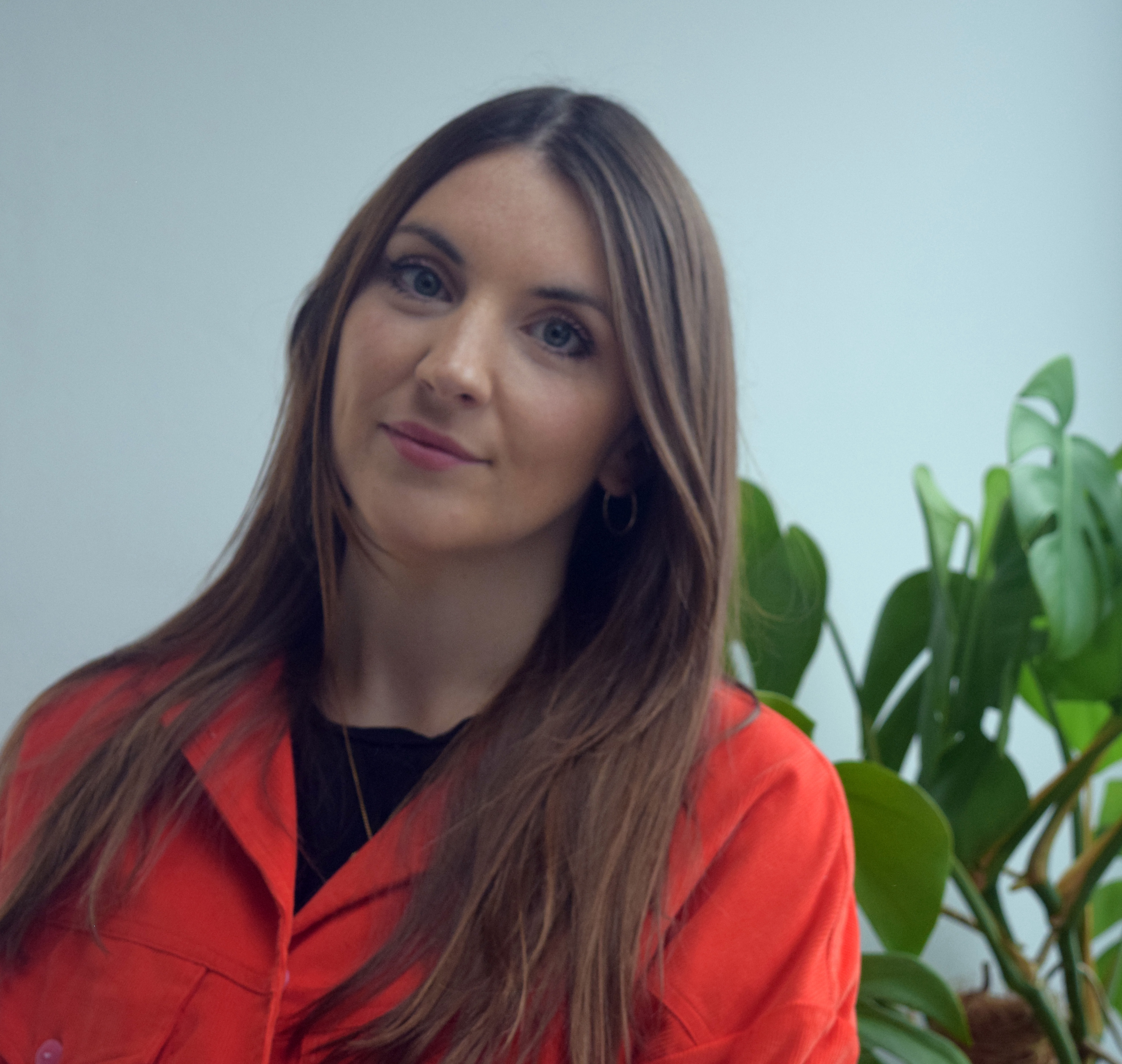Career change at 50: why it’s the perfect age to rediscover your purpose
Five women who have done it share their stories and advice.
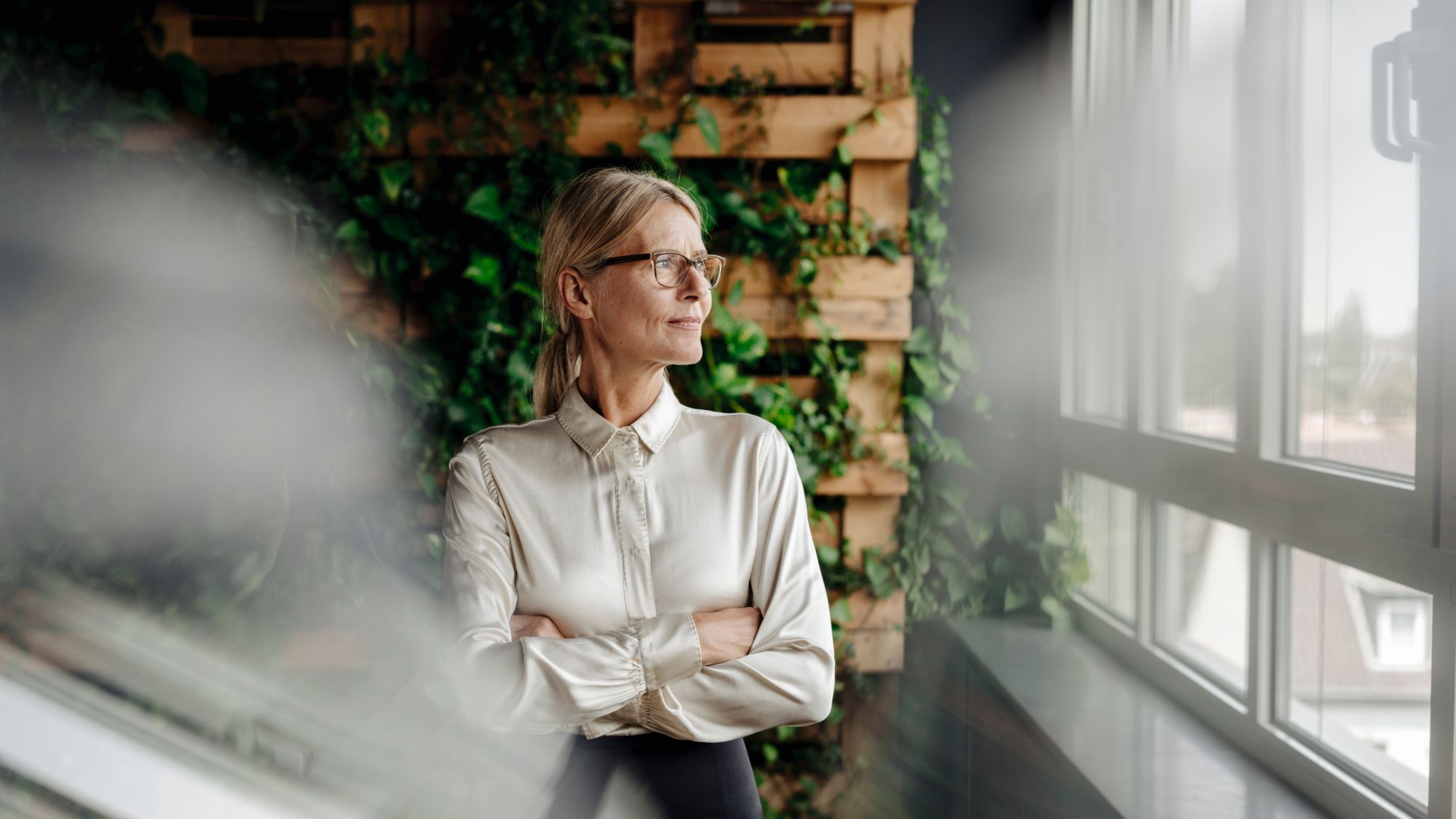

Often with decades of professional experience, fewer personal commitments and greater self confidence, your fifties can be a brilliant time to reassess your working life and try something new
Sure, a career change at 30 or even at 40 sounds doable — but at 50? It could be easy to assume that by this age, your path in life has been set.
However, starting a new profession in your fifties is more common than you might realise. “Of the women I work with, I would say that approximately 50% of them are 50 and over,” says Hannah Miller, a Gallup Certified Strengths Coach and Founder of sidekick.
It’s a period when there can often be significant changes in your personal life, whether that’s children leaving home, the menopause, divorce, remarriage, relocation or the loss of loved ones. “Moments of transition in our personal life can often play out in our career journey too — one season change leads to another,” says Hannah. “I find many of the women I work with can be feeling like they have outgrown an environment, that it no longer ‘fits’ the stage of life that they now find themselves in.”
It’s also a time of life when our priorities might shift. “As we age, we can care less about proving ourselves with status or financial gain, and more about discovering more of who we are and what we can contribute,” says Hannah. “We might be more comfortable in ourselves, and able to see the bigger picture of a team and the purpose of an organisation. There’s arguably less ego at play for many women in this life stage, especially if they have committed to their self development over the years that preceded.”
For all these reasons and more, it can be the perfect time to apply your experience and skills to a brand new field. Here, we meet five women who have done exactly that, and rediscovered a sense of purpose along the way.
Career change at 50: Sally

From marketing to wine making
Celebrity news, beauty, fashion advice, and fascinating features, delivered straight to your inbox!
“It can be a real advantage changing careers in your 50s,” says Sally Evans, who had previously worked as a marketing director for a big consulting company in Paris. A single mum of two boys, Sally decided to leave her job when her youngest was 15 to spend more time with him. “When he left home, I thought, well what am I going to do now?” she says.
52 years old at the time, Sally didn’t want to go back into the corporate world. So she decided to do what she’d always wanted. “I enjoyed drinking wine, but I'd never had the time to study it,” she says. After gaining qualifications through the WSET, the Wine & Spirit Education Trust, she decided she wanted to start making wine herself.
“I thought, where do they make great wine?” says Sally. “Bordeaux. So I travelled eight hours from where I lived in the South East of France. I didn't know anybody in Bordeaux, but I found a patch of vines with rundown buildings, and I bought them”.
Sally let the previous owner continue to work on the vines for the first couple of years while she finished her studies and renovated the house. Then in 2018, she built her own barrel rooms and has been making wine at Chateau George ever since. “I only make 15,000 bottles a year, which is relatively small,” says Sally. “But I don't want to rule the world. I just want to make the very best wine I can. And I’ve won loads of awards for it and I'm really proud of what I've done. At this age, you don’t necessarily feel the need to go big or just expand and expand.”
There are plenty more advantages to making a change in your 50s (although Sally notes that “wine is not not ageist”, unlike some industries). She explains: “My kids are gone, I don't have to worry about bedtimes, homework or ferrying them around. It's all about me now. And at 50, we've got all these skills that we didn't have 30 years ago.”
In doing something she loves, Sally says she’s got more energy now than she’s ever had. “We mustn’t forget to have fun,” she says. “It’s about having the confidence to not care what other people think, to keep learning, and to focus on what makes you happy. We’ve spent all our lives worrying about everyone else. Don't feel guilty. This is about you.”
Career change at 50: Elayne
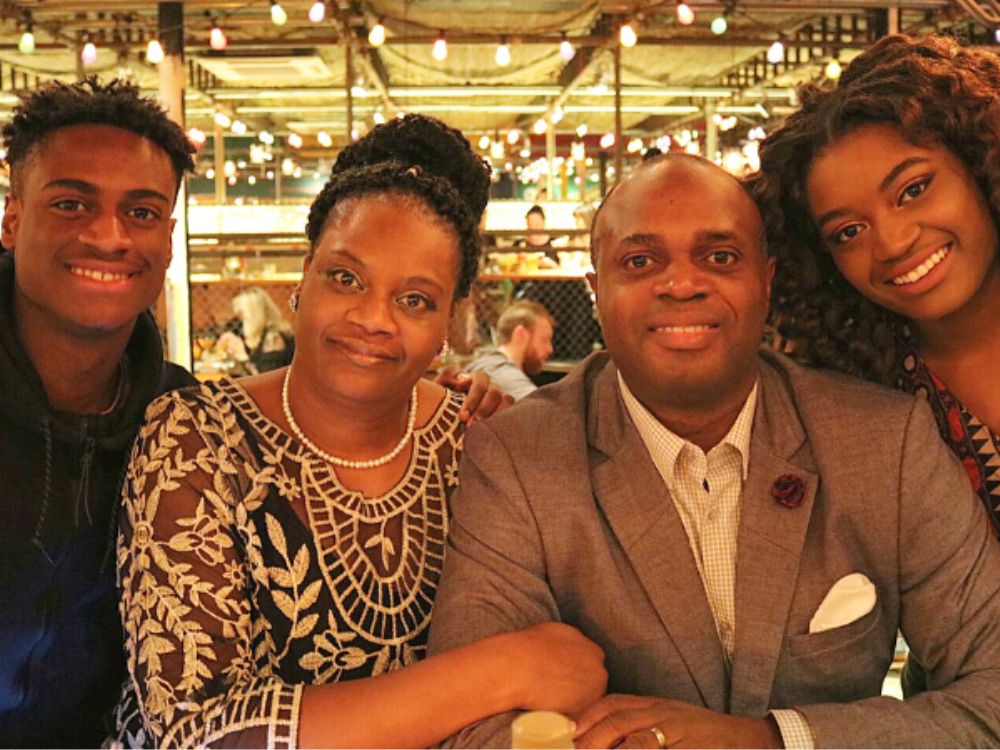
From teaching to writing plays and children's books
It wasn’t until she approached her fifties, that Elayne Ogbeta, now 52, had the confidence to share her writing in a professional context. She’d completed a creative writing degree while raising her two children, but worked as an ESOL tutor at a local college in Salford, Manchester.
She’d been gifting poems to friends since childhood, and in 2011, self-published a children's picture book called Anansi and the Dutchy pot. Part human, part spider, Anansi is the subject of many traditional West African and Caribbean folk stories.
It was only when she plucked up the courage to show a potential radio play she had written, also on an Anansi theme, to the creative team at local children's theatre Z-arts that things began to change.
The Z-arts crew loved her ideas and words and asked Elayne if they wanted to work with her and a London-based theatre company called Half Moon to produce a stage show for children.
After three years of development, Grandad Anansi toured the UK throughout Black History Month. Full of joy, movement and songs, it is suitable for children aged 4–9 and shines a light on Jamaican culture and the Windrush generation. Elayne now writes full time and is currently working on ideas for children's books.
Career change at 50: Lucy
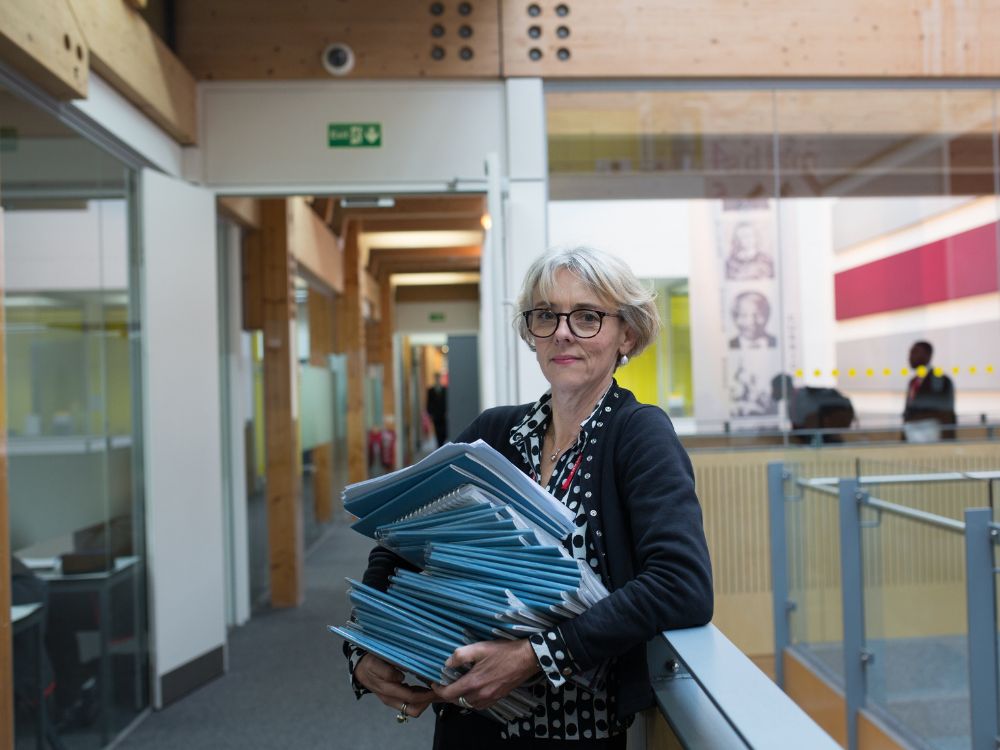
From journalism to teaching
“My job was the cushiest in the world,” says Lucy Kellaway, remembering her role as an associate editor and management columnist at the Financial Times. “Every week, I'd think of something daft that was happening in business and write a column mocking it. I never ran out of things to make fun of — it was all such fun. I was a round peg in a round hole.”
But after Lucy hit 50, things started to change. “I realised that I didn't want to only do one thing all my life,” says Lucy. “Also the things that had drawn me to journalism — the glamour and, frankly, the status — had stopped meaning much to me anymore. I was no longer getting any better, and may even have started getting worse.”
Lucy’s mum had been a brilliant teacher, but seeing her up late at night marking student’s work had put Lucy off. “As a young woman I wanted to do a job as unlike hers as possible,” she says. “But when my daughter became a teacher on leaving school, and I saw how wonderful she was being with her students, I thought: I want to do that too.”
Lucy spent a year saving everything she could and taking on extra freelance work before handing in her notice. “I was in a lucky position, because at my advanced age I'd already paid off my mortgage and was no longer supporting my children, which meant I could afford to take a very large drop in salary,” she says.
While handing in her notice was “very scary”, it was made even scarier by the fact Lucy was writing and making a documentary about her career move. She had also decided to set up Now Teach, a charity to help support more people make a career change into teaching. “If I didn't like teaching, I knew there was no way out!” says Lucy. “At first I felt sick, but then very relieved. I had been in the same job for 32 years and so it really was time for a change.”
And luckily, five years on, Lucy has never regretted the move. “I did this because I wanted to feel useful — and I do, every day,” she says. “That said, I work much harder than I used to but don't resent it because I'm still learning so much. To anyone thinking of making a career change: It's not too late. Also, it's not too late if you leave it until you are 60, either!”
Career change at 50: Rachel
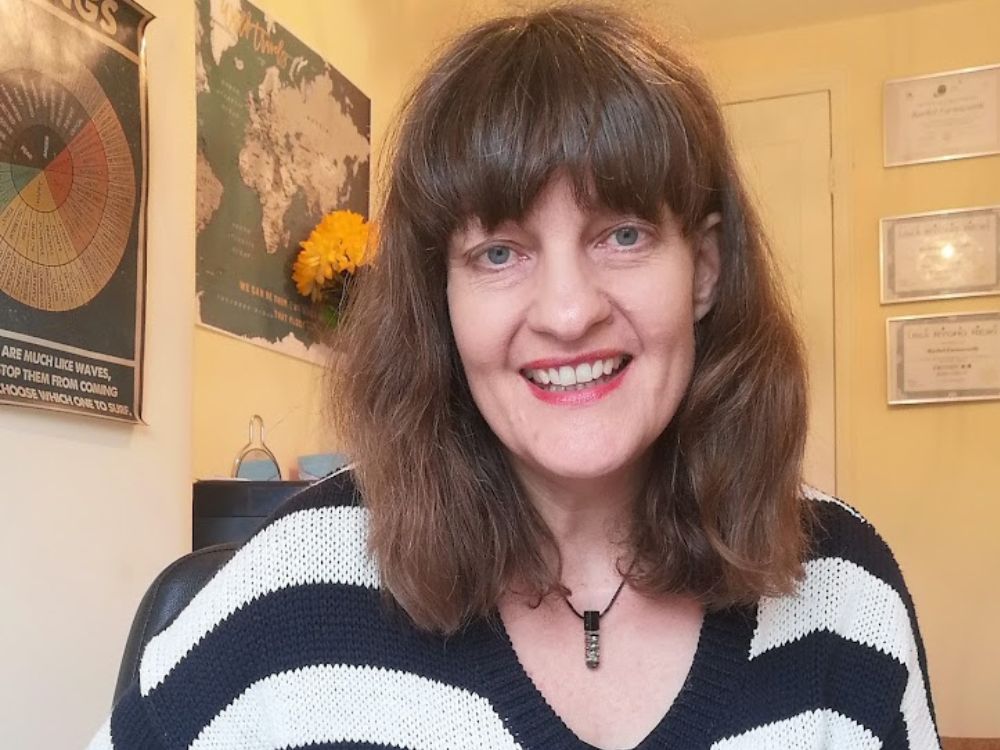
From admin to hypnotherapy
Rachel Claire Farnsworth, 53, had always thought of herself as an introvert and a people pleaser. From a job on the reception desk at a secondary school to working in a bank for 18 years, she’d chosen jobs which made other people happy, rather than ones that felt right for her.
At the age of 47, Rachel decided to train as a counsellor when an old friend suggested that she’d make a good therapist. “I found a local course which had hypnotherapy training for the first year,” says Rachel. “I really wasn’t interested in that, or so I thought! In the end, I only ever participated in that first year. I had fallen in love with hypnotherapy and went on to become an advanced hypnotherapist. But at that point, I had no real plans to leave my current job.”
Rachel was working as an administrator at a builder’s merchants at the time, which involved answering queries, paying invoices and helping with stock taking. Then one day, a hypnotherapy training video changed everything. The video discussed narcissistic abuse and toxic relationships — themes Rachel instantly recognised in her own relationship with her husband.
“At that moment, I knew I was trapped in a toxic relationship pattern and I had to do something about it,” she says. “I booked an appointment to see a divorce solicitor to find out what my options were, and then I began the divorce proceedings.”
She spent her 50th birthday packing her bags and moving out of her marital home. Six months later, she decided to hand in her notice. “I was finally following my own compass, my heart, my own desires,” says Rachel. “At the same time I was feeling apprehensive and scared. Could I really support myself and my daughter? I knew that I had to make this work whatever it took, because I was 50 now and only just decided what I wanted to do ‘when I grew up’!”
Rachel had been building up her client base on the side for the past year, and it continued expanding when she went full-time. “I am now attracting clients from all over the world,” she says. “I am so glad that I made the leap of faith. I had to trust myself like never before, it was a huge lesson in self-development. My advice would be to follow your heart and your dreams.”
Career change at 50: Rae
From an ironing service business, to dog walking and crime writing
Rae Radford realised it was time for a career change at 52. She had been running a successful ironing service business in London, and was about to move to Kent with her ex-husband for a quieter life by the sea. “Both of us had businesses in London, but as the children had flown the nest, we decided to try our hands at flipping properties,” says Rae, who is now 60. “I sold my company to the local dry cleaners and he sold his to a friend. We were off.”
As you age, you realise that you have more time behind you than in front, so what you have left, needs to be more about you.
For a while, Rae worked as a freelance consultant, helping other women running small businesses to market their crafts. “But my bum was getting bigger sitting in front of a computer all the time!” she says. “As my own dogs were getting older they only needed one walk a day, and I missed the exercise. Along came Minster Mutts, and I haven't looked back since. Today, for example, I've walked eight dogs and taken in some of the beautiful local sights along the way.”
She’s also working on fulfilling a long-time ambition – to write a crime novel. “'Near Miss' is coming along nicely,” she says. “As you age, you realise that you have more time behind you than in front, so what you have left, needs to be more about you. I wanted to do a job that I enjoyed, not one just to make ends meet. Plus relocating later on in life makes it harder to meet new people. This way I spend my days chatting to lovely dog owners and walking gorgeous dogs, even if it's raining! I never thought I'd be a country girl, but clearly, I am.”
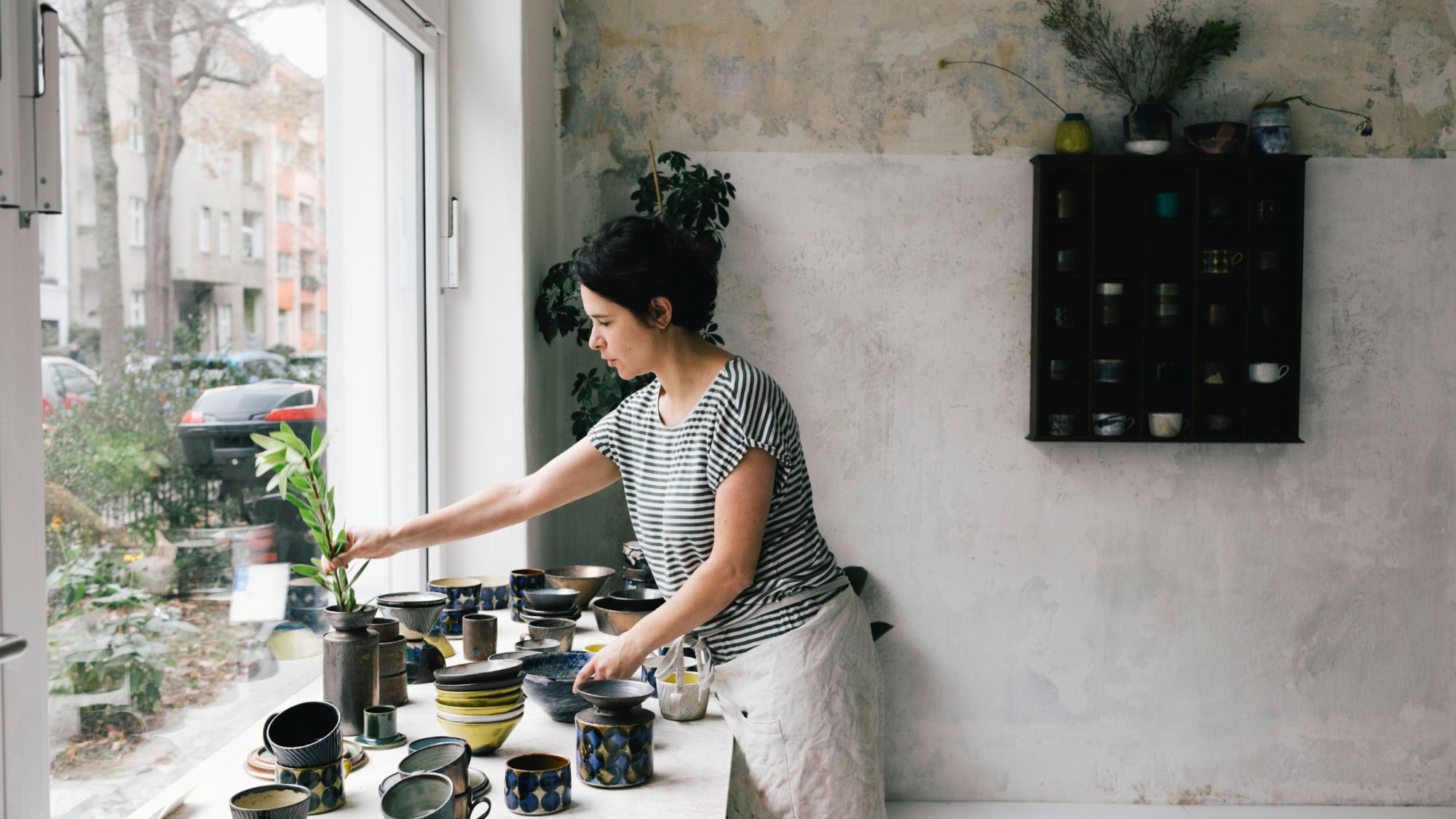
Expert advice on making a career change at 50
So, first things first: what are the common signals that a career change at 50 is calling for you? “A lack of enjoyment, being unable to recognise whether you are using your strengths and talents, low energy, low motivation and a lack of purpose can mean it is time to move on,” says Hannah.
She adds that a lack of confidence can also be a red flag. “It may sound counter-intuitive, but asking questions like ‘what do I actually contribute here?’ and ‘Who even am I?’, can often precede a significant life and career change,” she says.
Another common sign is feeling like you have “come to the end of an assignment”, says Hannah. “As in: ‘I have done what I am able to do here, staying will mean plateauing, which will lead to a lack of purpose and dissatisfaction.'”
However, it can take a while to recognise these signs and be honest about how we’ve been feeling. “As humans we don’t always like change, many of us hate feeling like a beginner and we can find ourselves choosing the status quo for far too long,” says Hannah. This is totally understandable — making a career change at 50 is undoubtedly a daunting prospect. Here are Hannah’s tips on how to get started with confidence.
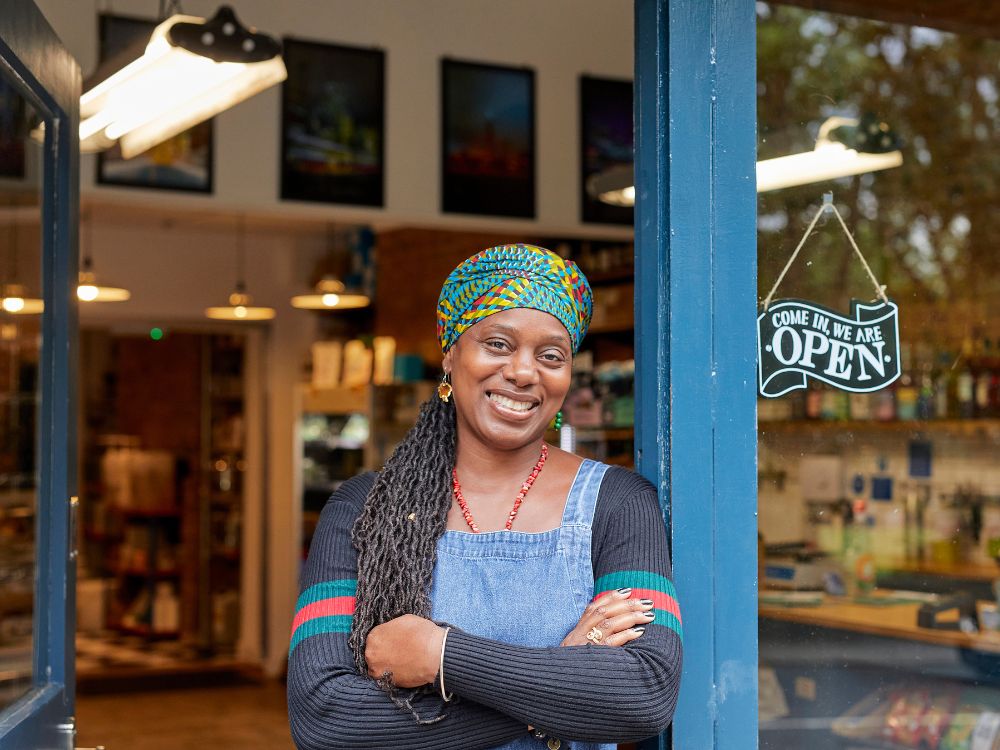
Take stock of where you are
Look back at your diary and the things you have coming up and ask yourself — when did I last feel satisfied at work? What was I doing? What is causing me to feel tired, unfulfilled, drained? And what am I looking forward to? What parts of my work am I enjoying? Starting with an inventory like this helps you to assess where you are.
Discover your strengths, and invest in them
I am a CliftonStrengths coach, which means I support women using a strengths based approach. We intentionally focus on what you are good at, what you prefer and what you enjoy as our starting point. Most women I work with need a boost in confidence. Remember: you do not need to be able to do everything. Being well-rounded is a myth.
Develop your language
As you begin to lean into your strengths and talents, push yourself to develop and use more and more specific language to describe your contribution. We need to move away from generic phrases such as ‘team player’ and ‘creative thinker’ and do the hard work of working out more specifically what we do well. This is not only really important for growing confidence but will prepare you for any interview process.
Own your weaknesses
As well as knowing our strengths, we have to do the hard work of recognising that there will be things that we find challenging. There will be ways that others may perceive us, and rather than just ignoring this and seeing it as other people’s problems, we will be ready for a career change if we know what it is that we don't bring, as well as what we do.
Define your values
This part of the process is often left out when we consider a career change, but compromise on your values and you compromise on your peace. What are your core values? Take a look online at a list of values — decide which are more important to you, and keep narrowing down the field until you get to a top five.
Get stuck into the idea of purpose
I love the idea that Dr Stretcher talks about in his work on purpose — the headstone test. Simply, what would you most like your headstone, or obituary to say about you? Are the actions that you are taking today in line with the legacy you want to leave?
